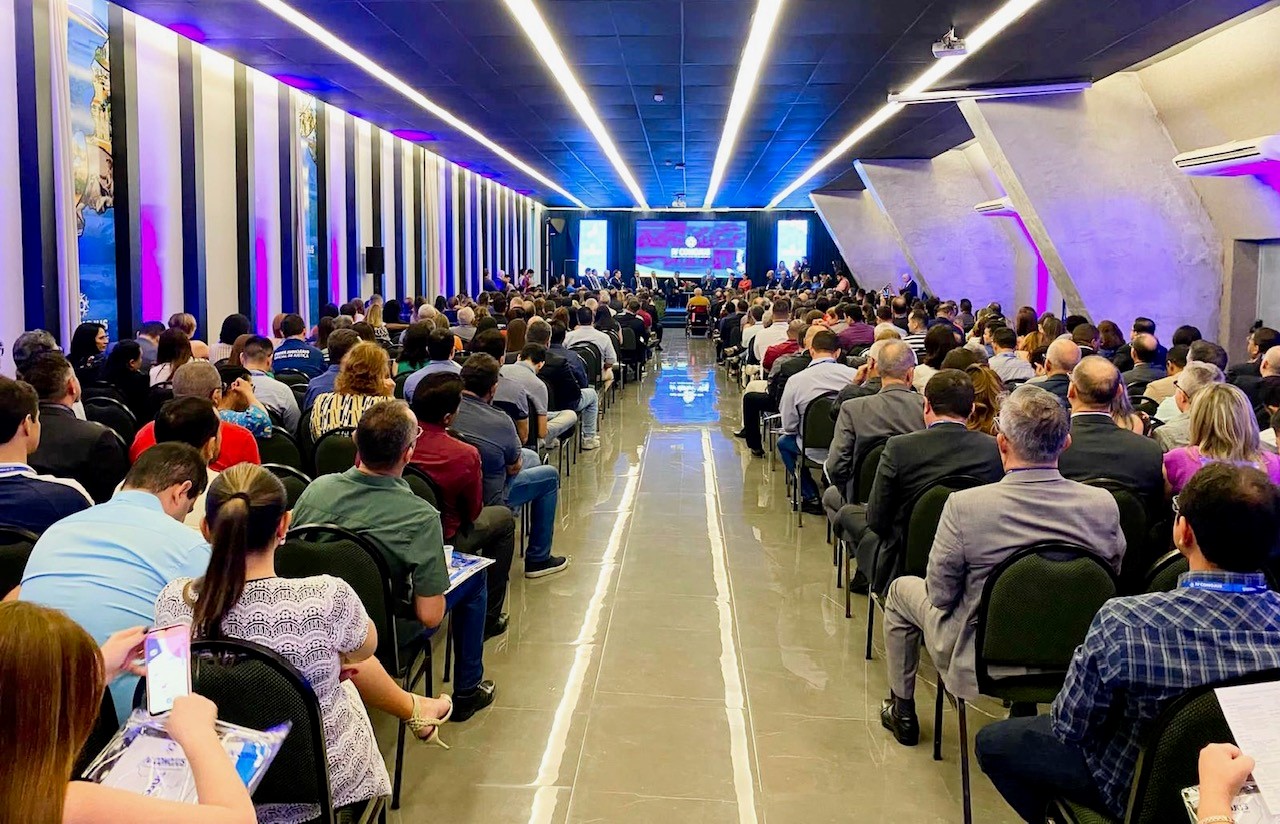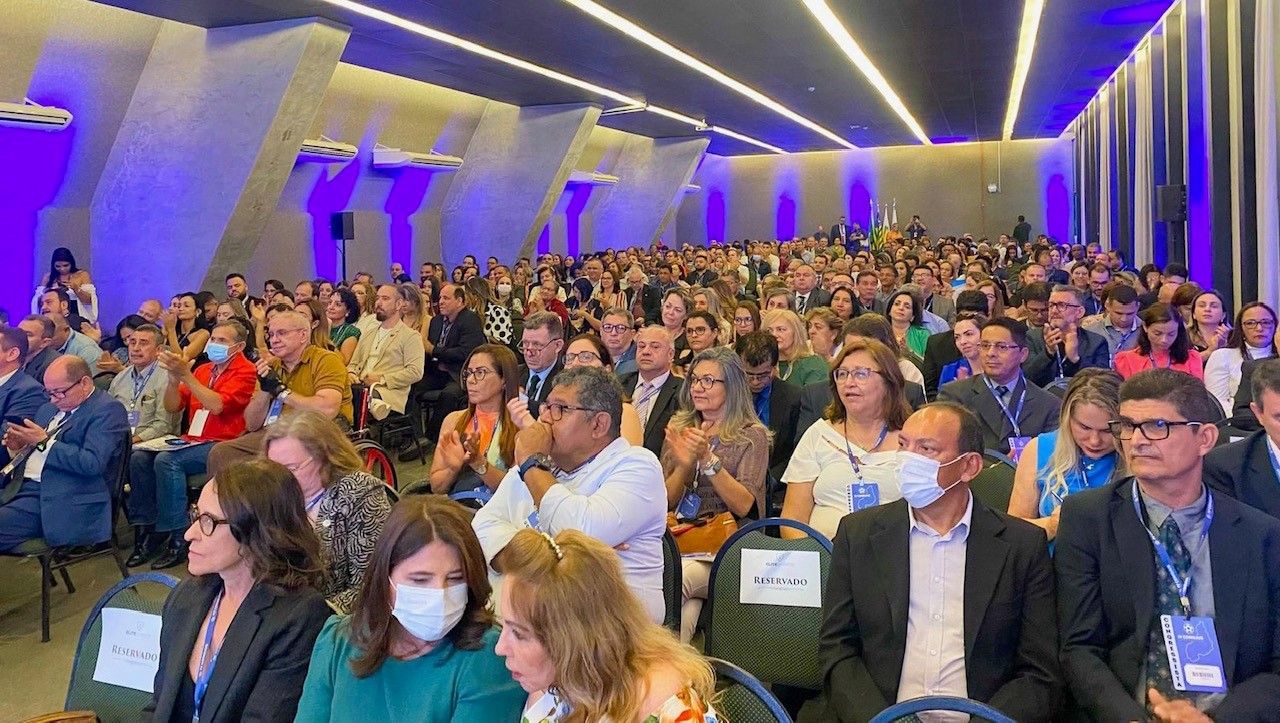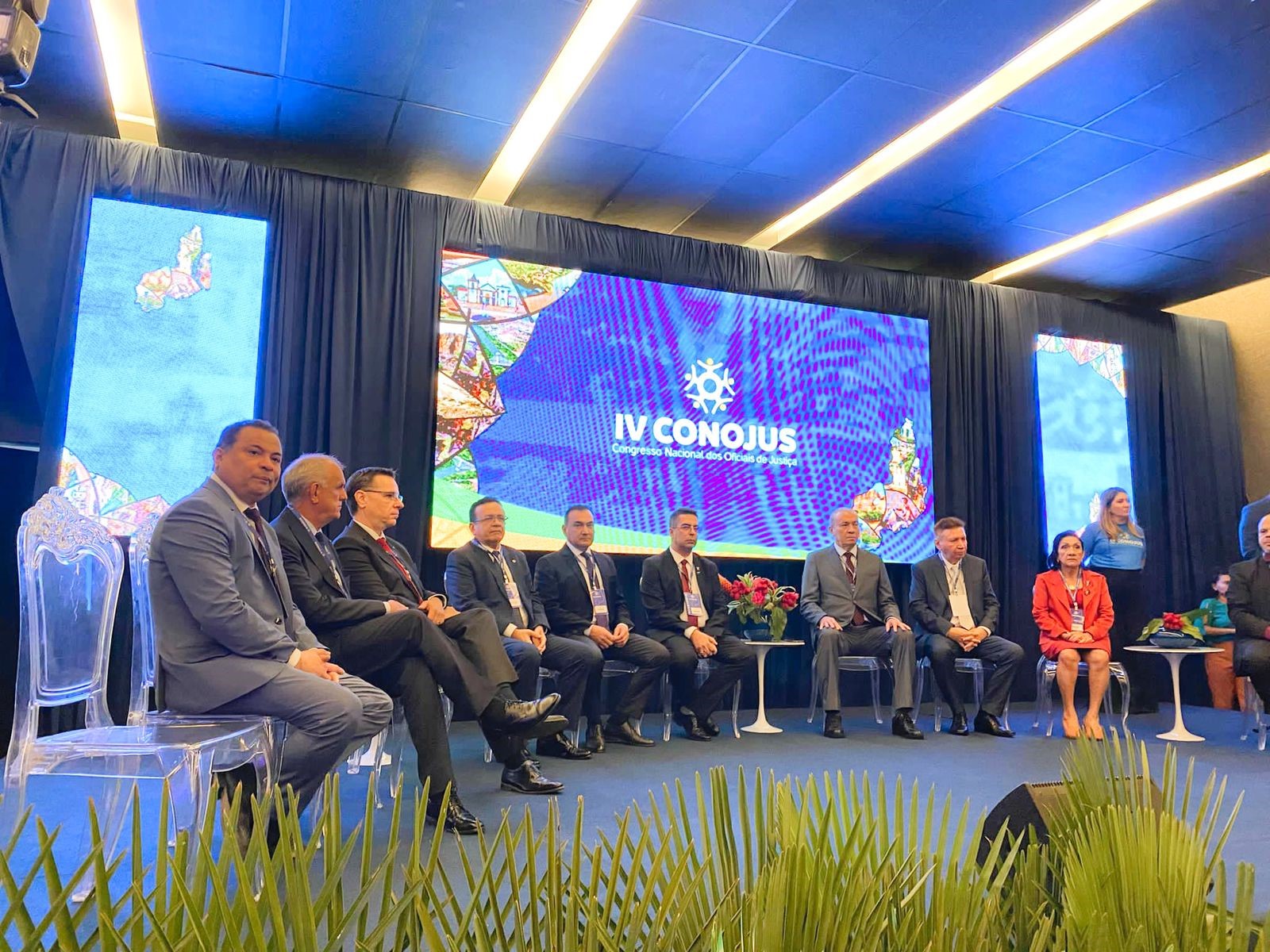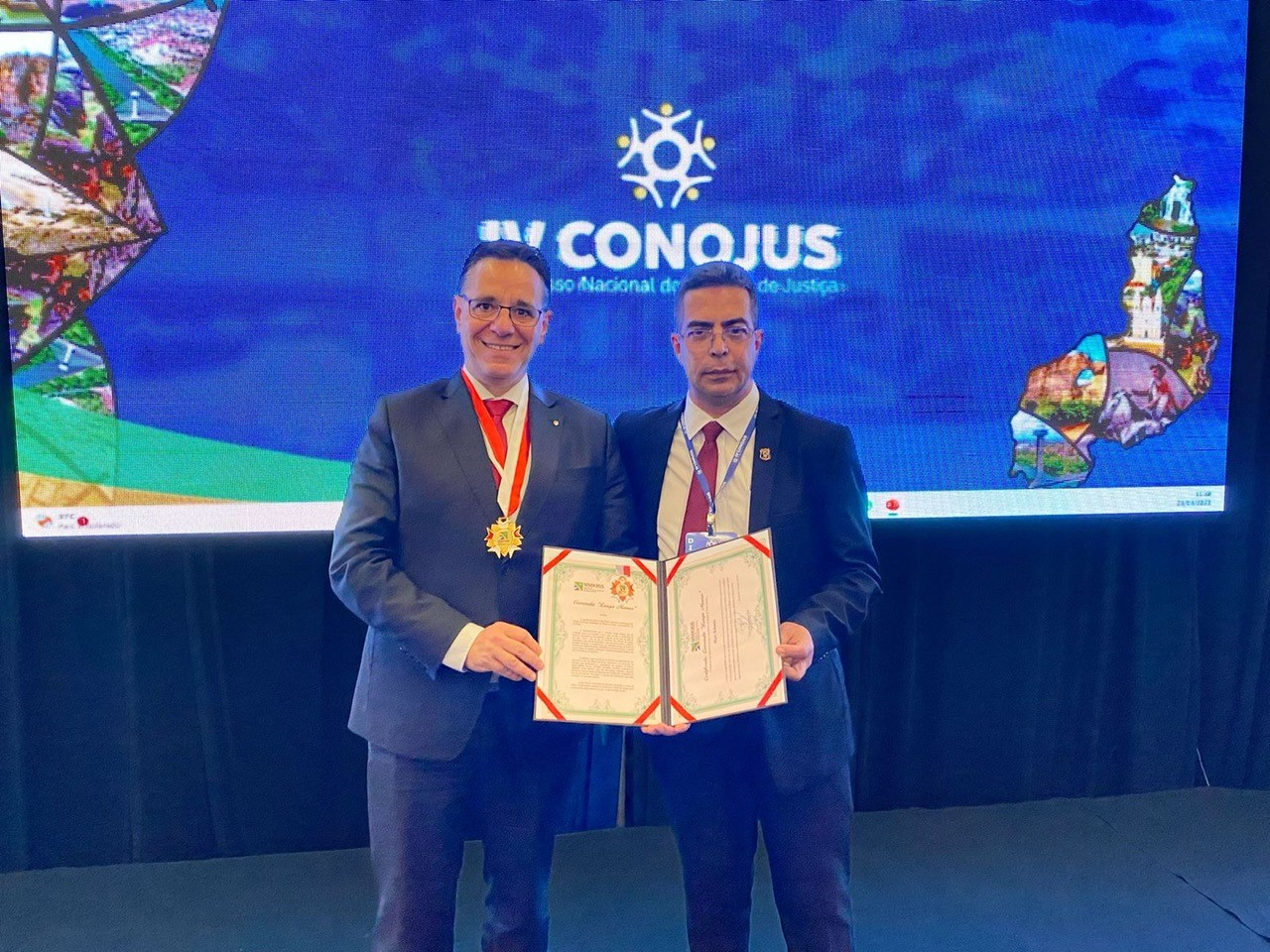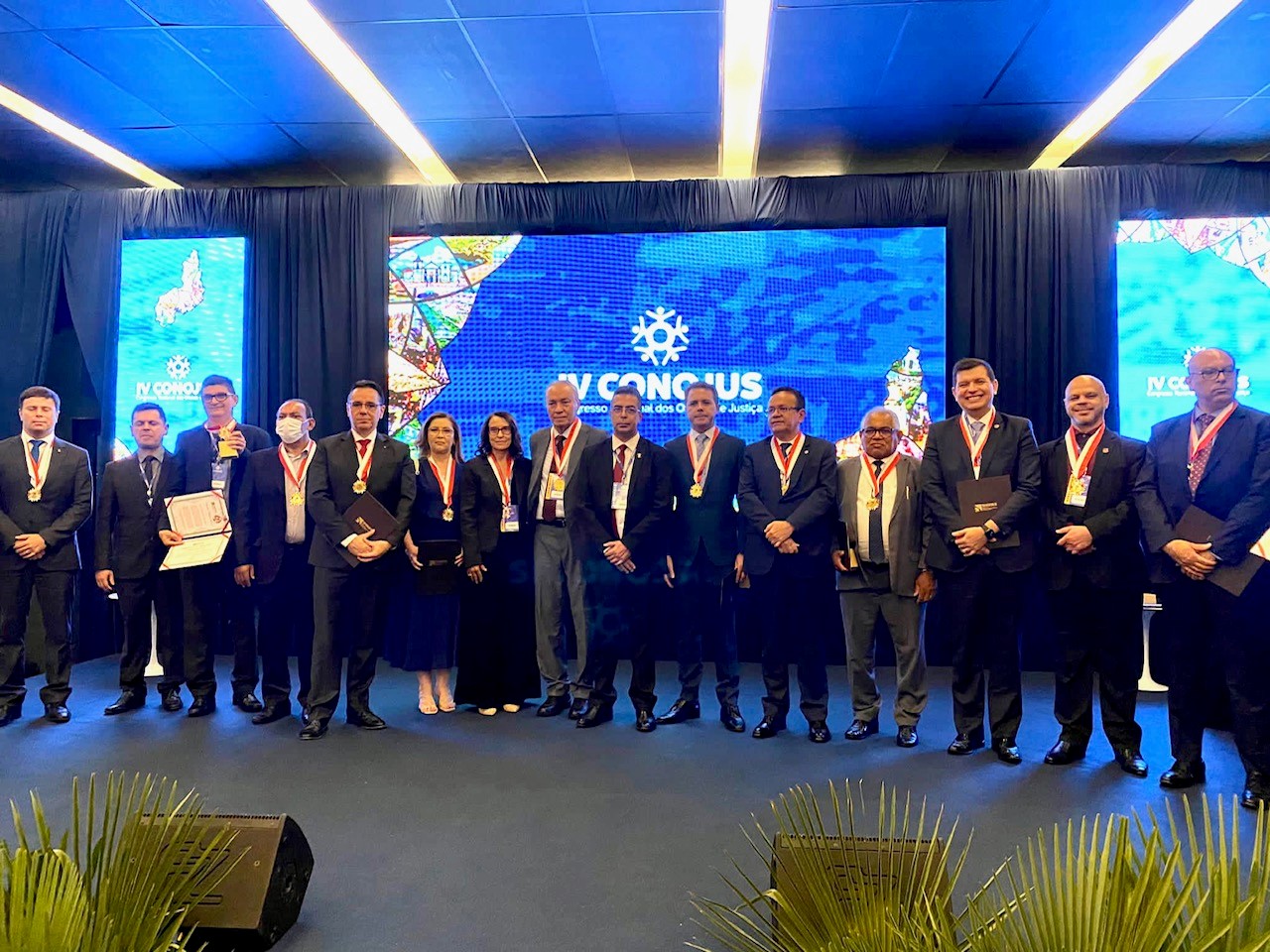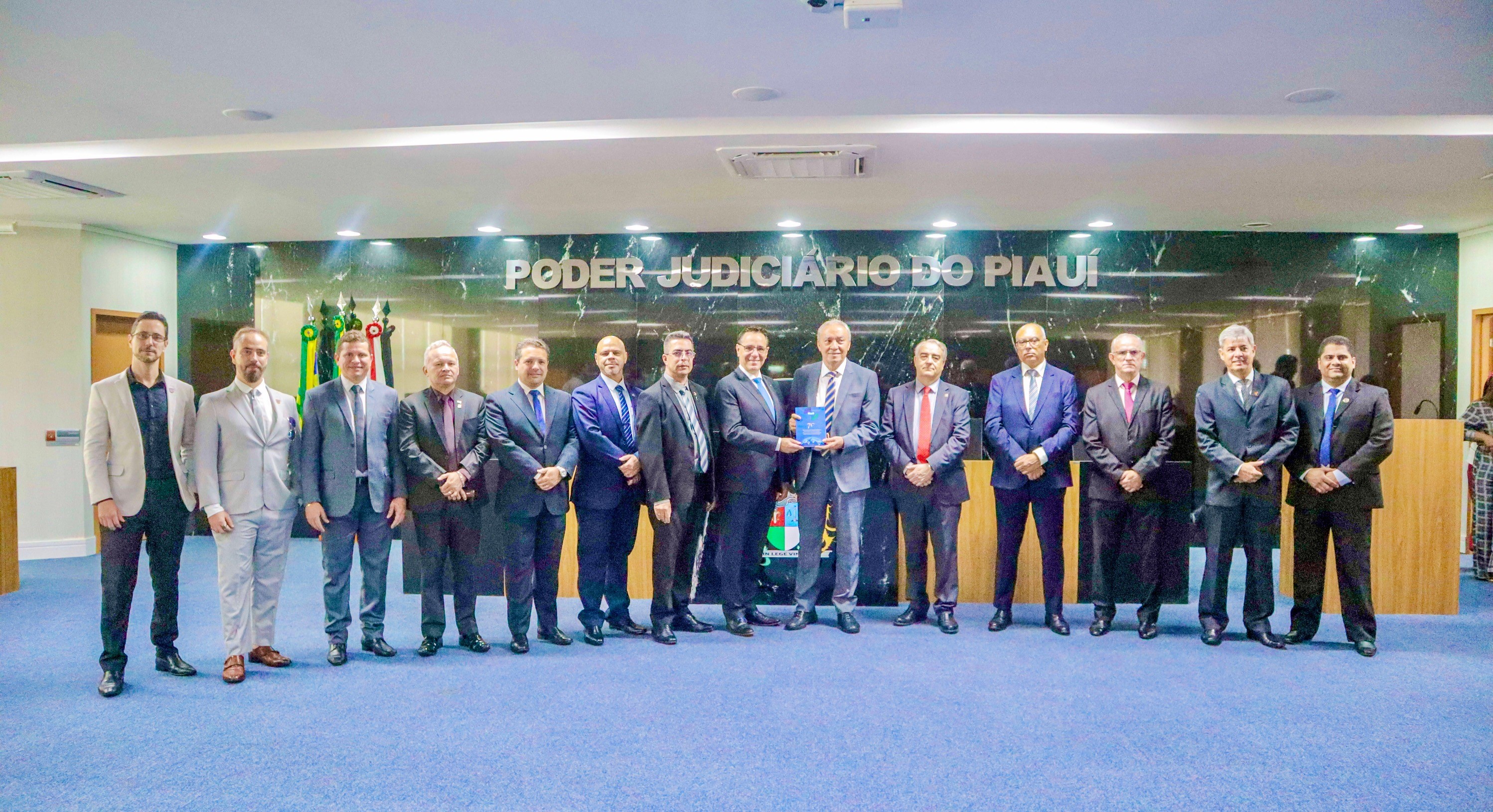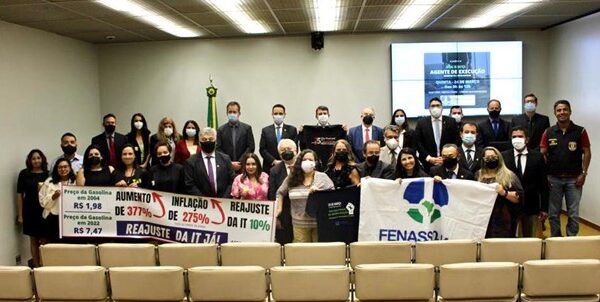The UIHJ, represented by Marc Schmitz, President, Luis Ortega, Vice President, Patrick Gielen, Secretary of the Board and General Reporter of the UIHJ congress in Rio (2024) and Malone Cunha, member of the board, participated at the IV CONOJUS – National Congress of State Judicial Officers held in Teresina (Brazil) on the 23rd and 24th of March 2023.
Organised by SINDOJUS/PI and FESOJUS-BR, relevant discussions on the new perspectives and duties of the Judicial Officer career, facing the pressing changes in the structural scenario of the Judiciary, as well as on the important expansion of faithful representation of the class, were widely debated.
THE IMPORTANCE AND ROLE OF WOMEN IN THE CURRENT JUDICIARY
The National Policy for Incentive to Institutional Female Participation in the Judiciary, established by the National Council of Justice (CNJ – Conselho Nacional de Justiça) through Resolution CNJ n. 255, of September 4, 2018, was widely discussed by women whose names represent great icons in the Judiciary. The speaker, Her Excellency Liana Chaib, Justice of the Superior Labour Court, was present, with the participation of the lawyer of SINDOJUS/PI, Dr Ednan Soares Coutinho. As debaters, the presence of the Magistrate Eulália Maria Ribeiro Gonçalves Nascimento Pinheiro, the Professor and Judicial Officer from Rio de Janeiro Claudete Pessoa, former teacher of FGV and current President of SINDOJUS/RJ, and Dr Nubia Cordeiro Fontenele, Secretary of the General Justice Office of TJPI – State Court of Piaui, further enriched the thematic table.
This group of remarkable professionals emphasised the need for greater participation of women in leadership and management positions in courts and other institutions. The table highlighted the importance of the presence of women in positions of power, especially in the Judiciary. The speakers emphasized that the professional environment is still predominantly male in the Judiciary and in society in general, and that gender equity is evolving, but there is still much to be conquered and advanced. It was also highlighted that female Judicial Officers are still a minority in positions of power in the Judiciary, but that the perspective of women through their experience makes a total difference in their professional performance. Hence, the importance of women, present in more public positions, especially in leadership and power.
STRATEGIES TO SOLVE THE MAIN CHALLENGES OF THE JUDICIAL OFFICER
To address the strategic solutions and possibilities for overcoming the main challenges of judicial officers, brothers Dr Daniel Faião Rodrigues and Dr Mauro Faião Rodrigues, founders and professors at the School of Officers, were the guest speakers at this second thematic table of the day. The President of SINDOJUS/DF and Executive Director of UNOJUS – National Institute of Judicial Officers, Gerardo Alves Lima Filho, was invited to preside over the table. Meanwhile, Dr Kheyder Loyola, Municipal Legal Prosecutor, brilliantly acted as a debater.
On this occasion, the School of Officers once again presented important reflections to the IV CONOJUS audience on the difficulties and peculiarities of the daily life of Judicial Officers. Numerous aspects were pointed out that need standardisation by courts across the country. Apparently simple procedures still do not have a determined and observed standard in all federative entities. There is a real need for a deepening of the debate on such issues, and the valorisation of the profession is essential for the solution.
CURRENT SITUATION OF THE JUDICIAL OFFICERS
Shortly after, an extensive roundtable was formed by respected representatives of the Judicial Officers category in Brazil, composed of João Batista Fernandes, licensed President of FESOJUS-BR, Eleandro Alves Almeida, acting President of FESOJUS-BR, Luís Arthur de Souza, Financial Director of FESOJUS-BR, Mário Medeiros Neto, President of AFOJEBRA, and João Paulo Zambom, President of FENASSOJAF.
In this discussion, after distinguishing between representative entities, the current problems of the category in different states were listed, such as the precariousness in the face of the national situation with the proposal for the de-judicialization of judicial activities, the bill for carrying weapons, recognition of the risk activity, excessive work, special courts, and the capacity for the Judicial Officer to be a conciliatory agent. All the discussed themes have fundamental importance to unify the category around the same struggles towards obtaining the most effective results.
MENTAL HEALTH OF JUDICIAL OFFICERS: SELF-ESTEEM AND VALUATION OF LIFE
Psychologist and Judicial Officer of TJGO (Tribunal de Justiça de Goiás), Lorena Rodrigues Lourenço, and People Management Specialist, Dr Adriana Araújo, brought to the fore a subject of paramount importance for the category.
On this occasion, the impact of work on the officer’s health was explained. Scientific research conducted in different Brazilian states on the psychosocial risks surrounding the work of the Judicial Officer was also addressed. The results demonstrated that work can be a source of suffering and illness, contributing to the appearance or development of psychopathologies such as anxiety and depression. In addition, the psychologist offered tools for servers to take care of their mental health and re-establish self-esteem with self-acceptance, self-confidence, social skills, and social network.
Dr Thiago Amorim Neves, Medical Officer of the Court of Justice, was invited to preside over the table, and Dr Antônio Francisco Gomes de Oliveira, Judge of the Court of Justice of the State of Piauí, with experience in coordinating the Health Committee of CNJ in Piauí, was the guest debater.
THE FUTURE OF THE JUDICIARY. TECHNOLOGICAL INNOVATIONS, A NEW REALITY
The constant evolution of technology and its implications for the lives of Judicial Officers was also the substantial theme of the day’s thematic discussions. To address the topic, the speaker Vanessa de Marchi, Federal Judicial Officer of São Paulo, creator of the “Papo de Oficial” (Officer Chat) channel on YouTube and Instagram – @papo.de.oficial – and a scholar of innovation in the Judiciary, brought her vast research knowledge, allowing the audience to enjoy the highest foray ever made in Brazil on the transformation of the duties of the officialdom across the country.
With her were Judge Manoel de Sousa Dourado, Vice-President of the Court of Justice of the State of Piauí, Lucas Corrêa de Pádua, Vice-Director of the Legal Department of SINDOJUS/PI, and Dr Campelo Filho, Post-Doctor in Law and New Technologies by the International Centre for Human Rights Research, University Mediterranea of Reggio Calabria Italy, in addition to being the Legal Director of Sesc (Serviço Social do Comércio) Piauí.
REPRESENTATIVE ENTITIES OF JUDICIAL OFFICERS IN BRAZIL AND ABROAD – DEFENSE VALORISATION AND CLAIMS OF RIGHTS
To close the event, representatives of the Judicial Officer category from various countries met to discuss the challenges and prospects for the dignified valorisation of the long manus of Justice.
Representatives from FESOJUS-BR took to the stage again and invited Marc Schmitz, Luis Ortega, Patrick Gielen, Malone Cunha, Carlos Henrique Bezerra Sales, President of SINDOJUS PI, Mário Medeiros, President of AFOJEBRA and João Paulo Zambom, President of FENASSOJAF.
At the end of the Congress, FESOJUS publicly announced that it will not hold CONOJUS in 2024, giving full support to the 25th UIHJ Congress in Rio de Janeiro.

